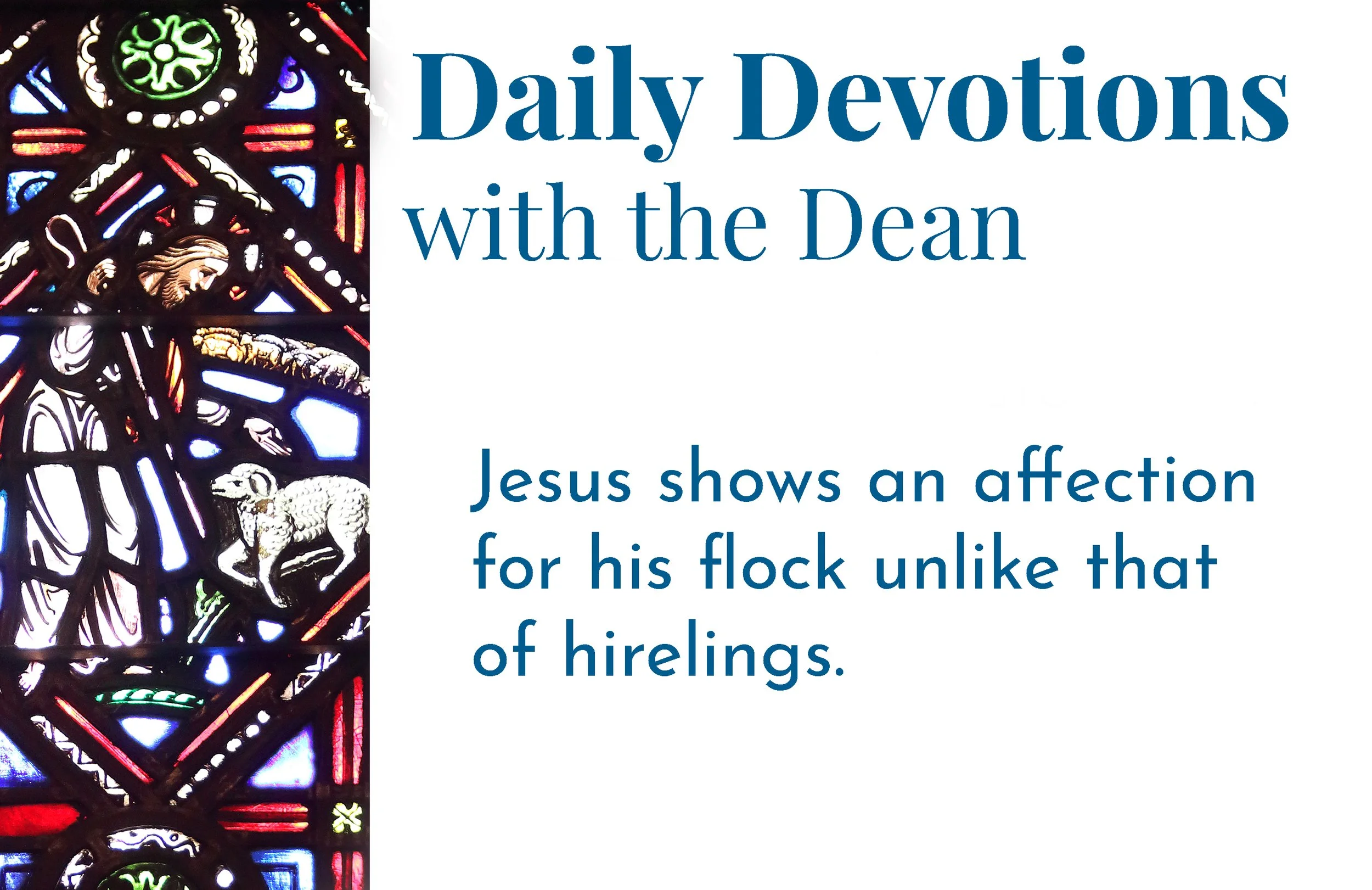Wednesday • 2/16/2022
Wednesday of 6 Epiphany, Year Two
This morning’s Scriptures are: Psalm 101; Psalm 109; Genesis 31:25–50; 1 John 2:12–17; John 10:1–18
This morning’s Canticles are: following the OT reading, Canticle 11 (“The Third Song of Isaiah,” Isaiah 60:1-3,11a,14c,18-19, BCP, p. 87); following the Epistle reading, Canticle 16 (“The Song of Zechariah,” Luke 1:68-79, BCP, p. 92)
Today’s Old Testament and Gospel readings converge in an intriguing way.
John 10: Jesus is the Good Shepherd who protects his sheep from predators. He shows an affection for his flock unlike that of hirelings, posers who merely pretend to care for them.
Genesis 31: Jacob’s shepherd is the LORD. After twenty years of abuse under his uncle Laban’s tent, Jacob has tried to leave quietly. But Laban has chased him down, gaslighting him by charging with being an ingrate and a thief (Genesis 31:25–28). God alone, complains Laban, keeps him from punishing Jacob.
In angry exasperation, Jacob draws on his twenty years of shepherding for Laban to explain how much abuse he has endured at his uncle’s hands, despite which he has conducted himself honorably and fairly. He has cared for Laban’s flocks without stealing any for himself; he has absorbed the loss when he had been unable to protect any of Laban’s sheep from predators or thieves (Genesis 31:38–41). He has been anything but the kind of “hireling” Jesus will later declaim. He has been a “good shepherd,” only to have Laban reward him with deception, lies, and inconstancy.
However, Jacob has come to understand that there is someone who cares for him. He has Yahweh (as his descendent David will describe it several generations later) as his shepherd: “The LORD is my shepherd, I shall not want…” (Psalm 23:1). Jacob recognizes that “the God of my father, the God of Abraham and the Fear of Isaac” has taken his side, protected him, and prospered him. He has come to know the care of his own Good Shepherd.
Jacob is on his way to seek out his brother Esau, whom he knows he has profoundly wronged. There he hopes to find reconciliation. Here with Laban, he is content with a non-aggression pact. The so-called Mizpah benediction (Genesis 31:49) calls upon Yahweh to serve as watchman between the two of them, each erecting a testimonial pillar.
A huge takeaway here is that sometimes our Good Shepherd: 1) gives us courage to cut the tie of a relationship in which we’ve been exploited, 2) the wisdom to build good boundaries, and 3) the strength to move on.
The Collect for the Fourth Sunday of Easter seems a good conclusion for today’s devotion: O God, whose Son Jesus is the good shepherd of your people: Grant that when we hear his voice we may know him who calls us each by name, and follow where he leads; who, with you and the Holy Spirit, lives and reigns, one God, for ever and ever. Amen.
Be blessed this day,
Reggie Kidd+
Image: Stained Glass, Cathedral Church of St. Luke, Orlando, FL













